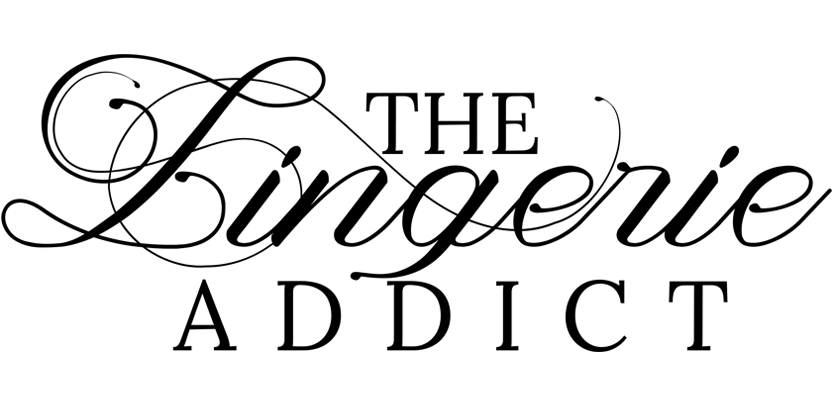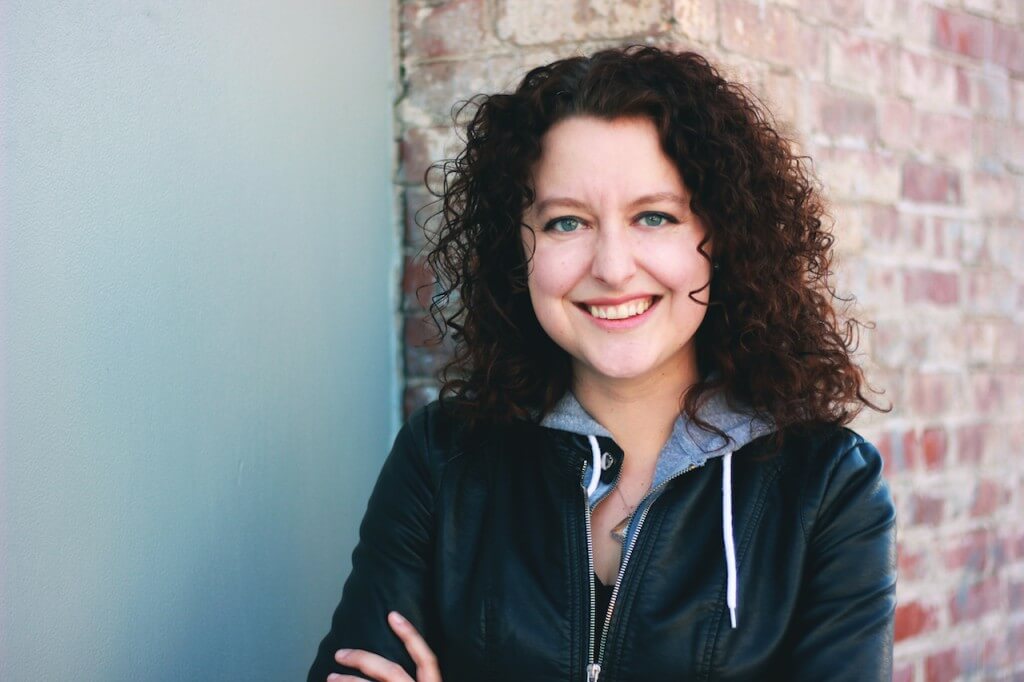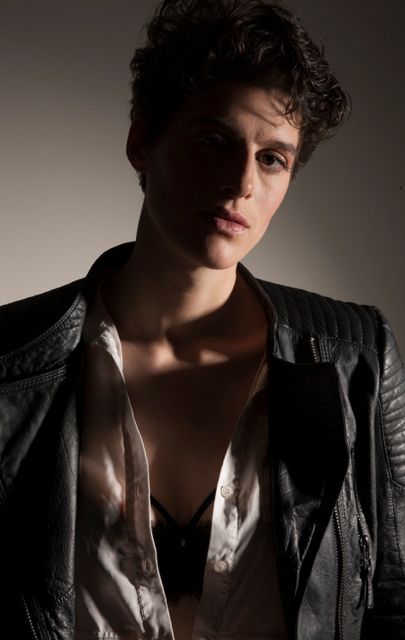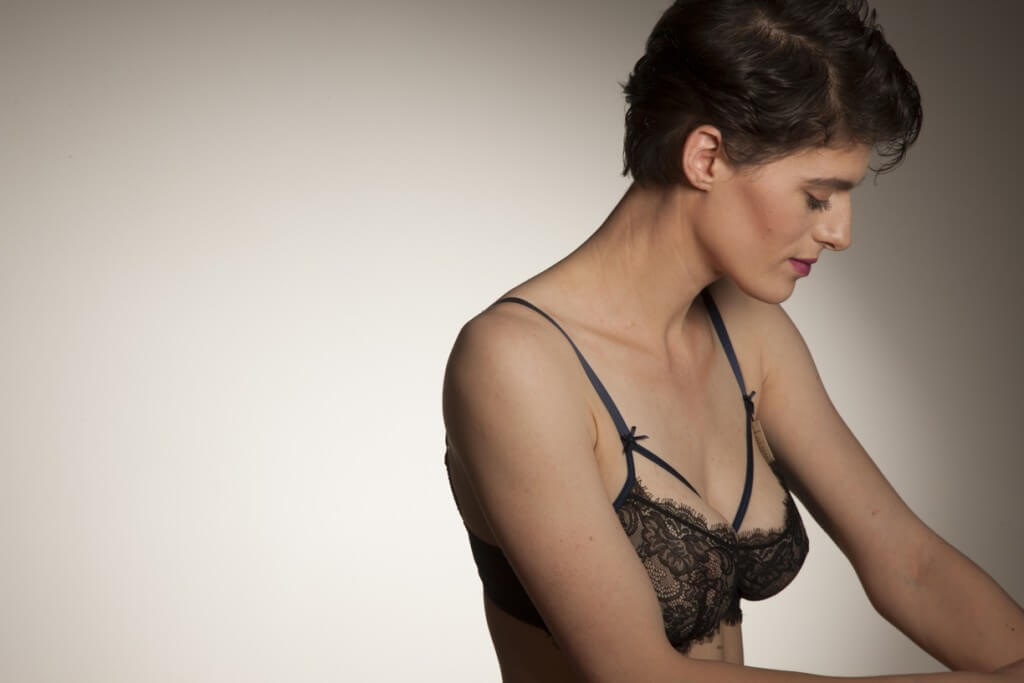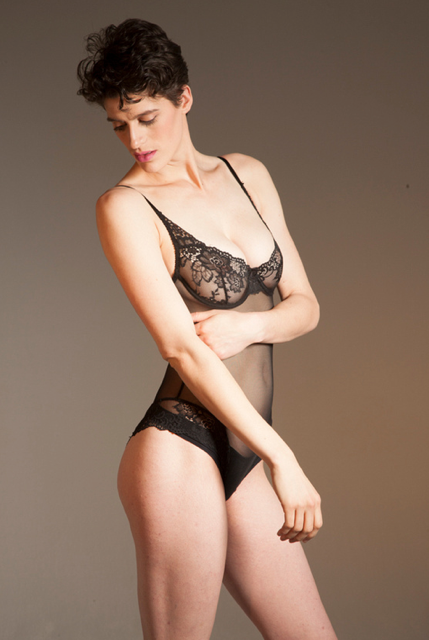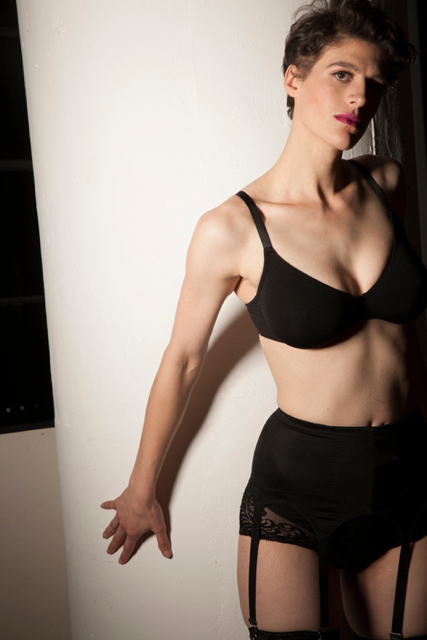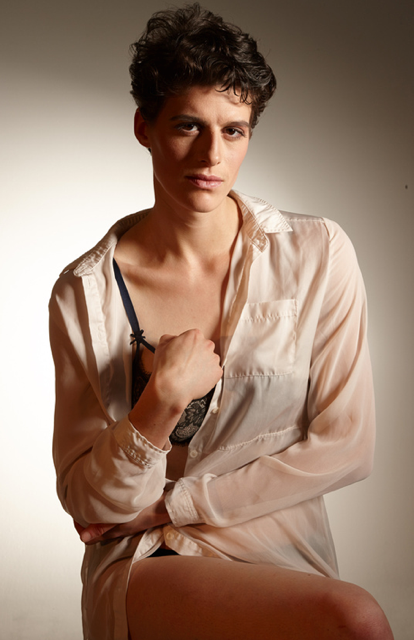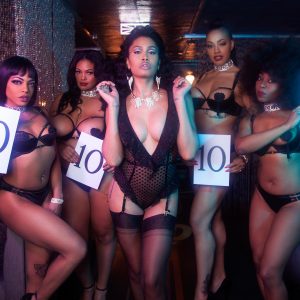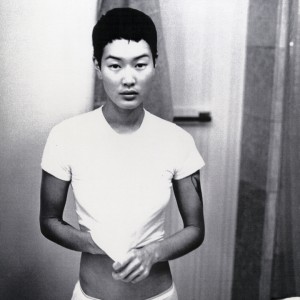The Challenges of Representation: Opening a Lingerie Boutique for the LGBTQ Community
Today's guest post is by Jeanna Kadlec. Jeanna is the founder of Bluestockings Boutique, the only lingerie boutique in the United States explicitly geared to the LGBTQ community. She has a Masters in English from Brandeis University and has written for Qwear, Ladypreneur League, and Feminist Wednesday. She lives in Boston. You can connect with Bluestockings on Facebook and Twitter.
Starting a new business is hard, no matter which way you slice it. The stats are staggering: eight out of 10 new businesses fail within the first eighteen months. And for women entrepreneurs - the hearts, minds, and souls behind the vast majority of indie brands, boutiques, and blogs in the lingerie industry - the outlook is even worse. Female entrepreneurs are uniformly not as well funded as their male counterparts; they receive less venture capitalist and angel investor funding than men and are more likely to use their own money to launch (a.k.a more likely to "bootstrap" it), which comes with a wealth of personal risk.
So, why bootstrap a lingerie boutique geared towards the LGBTQ community? Why start a business for a group of people so ignored by an industry that much of the population itself thinks, "Why would I need/want/spend so much money on that?"
Because it's not enough to only have one major blog explicitly run by an out gay woman (The Lingerie Lesbian).
Because it's not acceptable for The Lingerie Addict to be the loudest voice for change in the industry. A voice is needed, but when the loudest progressive voice consistently comes from a blog, and when progress is consistently slow, you know there is a problem.
Because it's not enough to have brands like Play Out making gender-neutral underwear if no one stocks them.
At the end of the day, this is an industry with many moving parts. I saw a significant gap happening on the boutique end of the spectrum, and, quite notably, the gap between the lingerie community and the queer community has to be bridged.
Frankly, none of it was happening fast enough for me.
That's why I decided to start Bluestockings Boutique.
*
There are a number of personal barriers to entry. Most notably, I don't have a business background! I jumped in because I saw a desperate need in the industry, and I'm not willing to wait around until it gets filled. I'm long on conviction, but short on business experience. Consequently, I've spent plenty of time in bookstores, coffee shops, and libraries over the last six months, culling through a stack of borrowed books for advice. Luckily, the internet has democratized the start-up landscape, so my learning curve has been accelerated by the fact that I can easily read through blogs comparing accounting software while still in bed at 8 a.m. with my laptop and a fresh cup of coffee (what, that doesn't sound exciting to you?).
Challenge: The Responsibility & Challenge Of 'Queer Aesthetic'
The challenge of being a singular source of representation is that the burden of representation falls on your business. However, no one can be all things to all people. Businesses themselves are deeply aware of this. Nubian Skin is a great example of a new company who has done a brilliant job of clearly communicating their capacities and limits as a new brand while handling a high volume of customer criticism due to their limited size range. Nubian Skin has said that they will expand their size range soon. But that takes money and time, and they only just launched. To my mind, the obvious answer is not having the burden of representation (in this case, nude lingerie for dark-skinned women, especially black women) fall on one brand alone. It's easier to serve your customers well when you are not expected to serve the needs of an entire population.
I see striking similarities in starting a business geared toward the LGBTQ community, also deeply underserved by the lingerie industry. The difficulty, however, is that a "queer aesthetic" is an ineffable quality that is so individual. If five different people started lingerie boutiques with the LGBTQ community in mind, you’d probably end up with five markedly different inventories. The last thing I want to do is try and promote any "queer aesthetic" in lingerie, because I think that queer underthings are any underthing worn by a queer-identified person, end of story. I've done market research and solicited input on inventory, but at the end of the day, this is just my vision for the store, one that will grow and expand as I learn more about who my customers are and what they want - just like any business owner.
I am also sensitive to straight-identified people getting their queer education from Bluestockings. This means that people are going to be exposed to items they may not have seen or even heard of before, such as binders and underwear that allows for packing. Moreover, I don't believe in segregating these items out (like many sex shops do) into "genderqueer" sections. Frankly, that's the equivalent of when people say, "What you do is fine, but I don't want to see it." Underthings can be reflective of identities, but at the end of the day, they are just options for all of us. None of it is shameful.
Challenge: You Can't Buy What's Not Available
There's plenty of feminine lingerie to choose from; there's not nearly as much androgynous lingerie. And honestly, of the androgynous options currently available, a lot of them still swing pretty femme.
It is important to stock androgynous and masculine-of-center options because lingerie is traditionally considered to be feminine and heteronormative. This isn't to say that androgyny is, as it is often considered to be, masculine. Plenty of queers of all genders celebrate their femininity in radical ways. However, context is critical here, and in lingerie, femininity is strongly associated with and specifically presented in, I would suggest, heteronormative ways. Thus, offering less feminine items is something that is vitally important to me in terms of making Bluestockings not look like every other boutique.
Moreover, there are a number of gaping holes in the underthings industry that need to be filled. A few that immediately come to mind: boxers and boxer briefs for plus sizes, more androgynous bras that have underwires, more options for top underthings outside of bras and binders, and more no-frills, androgynous styles in all categories of lingerie (perhaps most especially loungewear). This is in addition, of course, to the needs of underrepresented sizes. And for anyone who wonders what I mean by androgynous, it can be as simple as not putting a bow or lace on something. Eschewing such small but distinctly feminine details can do wonders for a person's psyche.
While no one can be all things to all people, I do worry about disappointing my LGBTQ-identified customers. I don't like letting people down. While I know that I personally have done the legwork and know that Bluestockings will be providing some of the best options available, I still want it to be more, and I know that it can't be: partly because of limited startup costs, partly because the LGBTQ-friendly options we would want to see just are not there, and partly because we are one store and simply cannot do everything for everyone.
It's similar to the problem brands like Nubian Skin and Chrysalis ran into. When a population has been so underrepresented for so long, and along comes a brand (or store) telling them that they are going to open with that population especially in mind, how can you not help but get your hopes up? And to an extent, how can you not help but be disappointed when they don't meet your every expectation? While Chrysalis is, perhaps, an example of what not to do (most notably for failing to respond to customers), Nubian Skin is an example of how to work with customers and respond to criticism and be transparent about the process.
However, Bluestockings didn't come out of my desire to meet these particular needs that aren't currently being designed (though who knows what the future holds?). It came out of my own frustrations as a lingerie consumer of not having a place to go that explicitly considered me. It came out of a desire to curate a collection specifically for queer people. I wanted to pull the few options I did see into one place.
Challenge: Being Online
The choice to go exclusively online has given us wonderful flexibility, but has come with its own set of distinct challenges. These challenges have less to do with who we are serving and more to do with how we are serving people. There are three particular challenges I've met with (so far!) as an exclusively online retailer.
A number of brands just won't sell wholesale to retailers who are exclusively online. I completely understand this, particularly when a brand's sales are largely (or exclusively) online themselves.
Still other companies won't sell to an e-commerce store until after you've launched. They want to see if, as a new business, you can make it. So they wait for months (or even years) before accepting a wholesale order. They're protecting their own brand identity by waiting to associate themselves with your brand. Again, it is a completely reasonable business practice, but one that does cut down on the number of potential brands (particularly recognizable brands) that an e-commerce store can stock right out of the gate.
The third practice is one I have reservations about, because, to my mind, it discounts the vitality of digital business. Some brands have different minimum order requirements for brick and mortar businesses as opposed to online boutiques. Notably, the different requirements for online businesses aren't designed to prove the digital seller's legitimacy (i.e. that they aren't a discount seller, which is a valid concern). Rather, these order minimums are prohibitively large for an online startup, reaching into the five-figure range. A new online boutique (any new independent boutique, I would wager) cannot afford to spend five figures on one brand alone. This kind of requirement cuts everyone out except the biggest online retailers.
Challenge: No matter what business you're in, businesses are made up of people, and people are people.
Which means that your business interactions with companies can be amazing or less than amazing. This has particularly come into play with our biggest, most unexpected struggle: finding binders.
As of this writing, it is uncertain whether we will have binders in stock for our launch, which is heartwrenching. Binders are a cornerstone of queer underpinnings—one of the most recognizable staples, even if not always the most popular option. However, we have only ever heard back from one supplier of binders during the wholesale inquiry process and may not have binders in time for our launch. But, businesses are made up of real people. Emails fall through. You never know what’s going on. As someone who is trying to bring binders and bras together as options for people of all genders, unexpected setbacks in this particular area have proven a challenge. I am encouraged by the example of other brands and stores who have been transparent about their processes, and hope that a similar transparency in communication will help mitigate these bumps in the road.
*
It's 2015, and the world is changing, some say. Gay marriage is headed to the Supreme Court. We have a black president.
But as of February 16, 2015, six trans women have been brutally murdered this year (one each week). In early February, a lesbian couple was shot to death in their home in Massachusetts. There is civil unrest over the deaths of countless black men and women in this country at the hands of those who are supposed to protect them. Selma was nominated for Best Picture, but it's the whitest Oscars since 1998.
Lingerie might seem like an unusual stage on which to discuss things like representation and equality. Capitalism and activism make strange bedfellows. But change starts from the ground up, in the nooks and crannies of our everyday lives, in the places we regard as safe and normal. It starts by altering our language to be more explicitly inclusive. Not everyone has to run an explicitly diverse boutique, but starting to be more explicitly representative of others doesn't just change how you run your business. It helps change people's hearts and minds. It helps change a culture.
Representation is not an idea. It's a practice.
